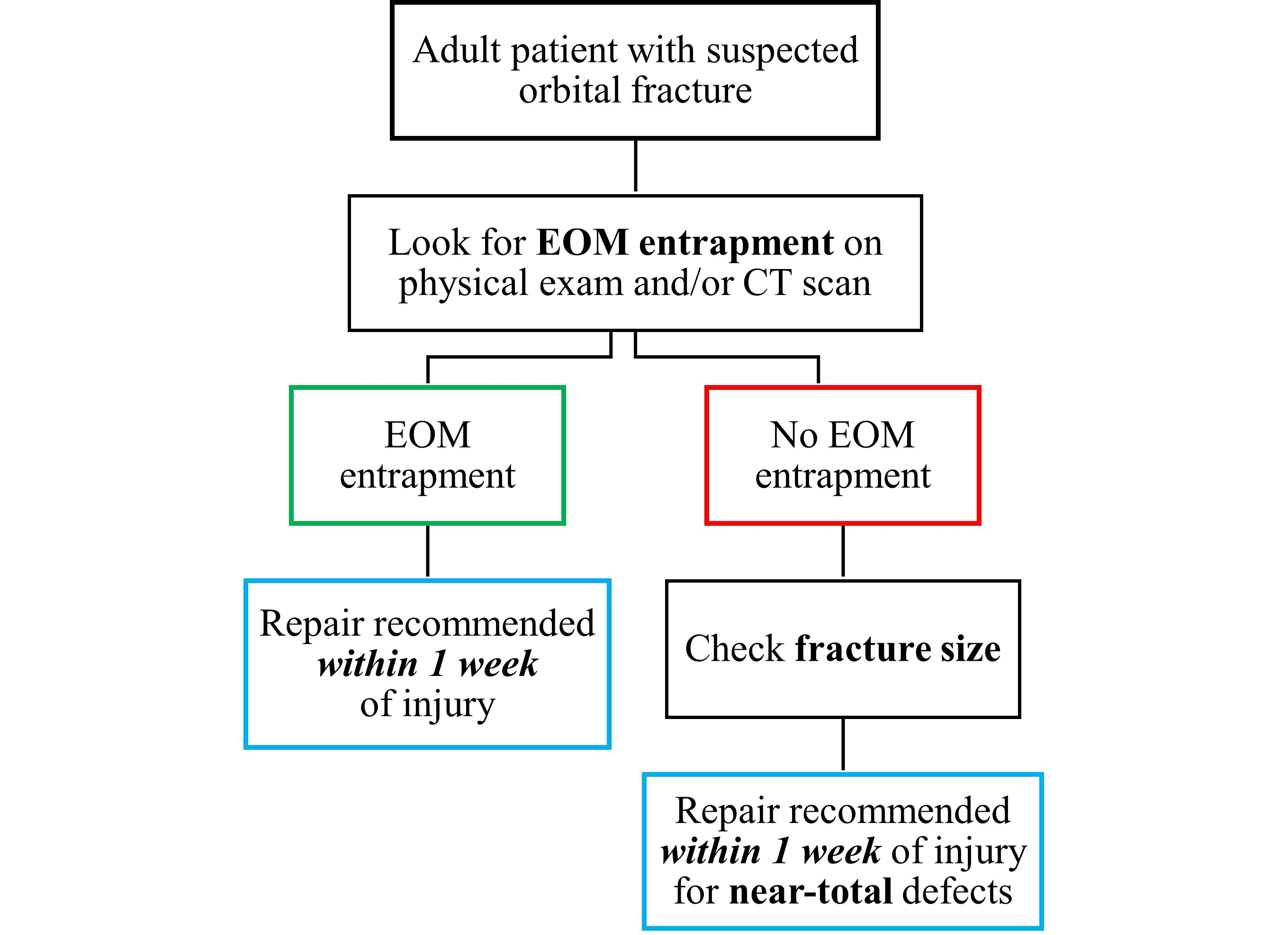Time is Muscle: The Impact of Surgical Timing in Orbital Fracture Repair
Bashar Hassan*1, Seray Er3, Joshua Yoon4, Eric Resnick3, Cynthia T. Yusuf2, Fan Liang2, Richard Redett2, Robin Yang2, Michael Grant1
1Plastic and Reconstructive Surgery, R Adams Cowley Shock Trauma Center, Baltimore, MD; 2Plastic and Reconstructive Surgery, Johns Hopkins, Baltimore, MD; 3School of Medicine, University of Maryland, Baltimore, MD; 4Surgery, George Washington University, Washington,
For decades, there has been an ongoing debate about the ideal timing of orbital fracture repair (OFR) in adults. Although there is strong consensus that extraocular muscle (EOM) entrapment is an indication for early repair, factors that should govern surgical timing in case of no EOM entrapment are unknown. Our study is the first and largest multi-center study to assess the association between surgical timing and postoperative ocular outcomes following OFR.
We retrospectively reviewed trauma patients who underwent OFR at two centers from 2015 to 2019. Excluded were patients <18 years old and those with follow-up <2 weeks. The primary outcome was incidence and/or persistence of any postoperative ocular complication at >2 weeks following OFR. Surgical timing was categorized into 0-7, 8-14, 15-28, and >29 days from injury to surgery. The association between surgical timing and postoperative ocular complications was assessed using Chi-square/Fisher's exact tests in patients with EOM entrapment, enophthalmos, diplopia, and different fracture sizes.
Of n=253 patients, n=13 (5.1%) had preoperative EOM entrapment. Of these, patients who had OFR within 1 week of injury were less likely to develop postoperative diplopia compared to patients who had OFR within 8-14 days of injury (n=1/8 [12.5%], n=3/3 [100%]; P=.018). Patients with near-total defects were more likely to develop postoperative enophthalmos if OFR occurred 15-28 days (n=2/6 [33.3%]) or >28 days (n=8/24 [33.3%]) after injury compared to patients who had OFR within 1 week of injury (n=0/30 [0.0%]; P<.001). There was no significant association between surgical timing and postoperative ocular complications in patients with no EOM entrapment and less severe fractures, preoperative diplopia, or enophthalmos.
We recommend surgical intervention within 1 week of injury for orbital fractures with EOM entrapment or near-total defects. Surgical delay is possible in case of less severe fractures, preoperative diplopia, and/or enophthalmos.
Back to 2023 Abstracts


